
A Pilates teacher once suggested that if you ever suffer an ankle injury, it helps to practice standing on that foot alone (when it is sufficiently recovered) as often as you can. Why? Because the nerves are also injured in sprains and the neural connectivity between the foot and the brain is undermined. Standing on one leg restores the passage of information from the ankle to the brain so that your balance and movement become more resilient again.
I find this a good metaphor. Balance is a shifting and dynamic notion; not about achieving a static point but sustaining dynamic equilibrium, which is far more fluid in living systems. It tells me that what is important with a balance is opening and restoring the flow of information. We could say that we become imbalanced whenever we block or close down to a wider understanding of our situation, our relation, and our context. We lose the ground upon which we stand and substitute for more abstract thoughts and memories. It is as if we literally lose our understanding.
This happens for me when I fall back on old patterns and get stuck. It could happen when I repeat past judgments and ideas about a person or situation that has changed, and get into conflict. We can see this happen with our friends, families, bosses, and also in political situations all the time.
It seems that we have to apparently lose our balance, our old stance, in order to find a new one. We have to sometimes let go of what we hold on to in order to keep our sense of upright strength, in order to move forward and explore new territory. Is this what we do every time we take a step and walk forward?
Within psychology, there are many different ways to make sense of how we lose balance in our relationship with the world:
Denne historien er fra April 2023-utgaven av Heartfulness eMagazine.
Start din 7-dagers gratis prøveperiode på Magzter GOLD for å få tilgang til tusenvis av utvalgte premiumhistorier og 9000+ magasiner og aviser.
Allerede abonnent ? Logg på
Denne historien er fra April 2023-utgaven av Heartfulness eMagazine.
Start din 7-dagers gratis prøveperiode på Magzter GOLD for å få tilgang til tusenvis av utvalgte premiumhistorier og 9000+ magasiner og aviser.
Allerede abonnent? Logg på
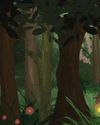
A Flower from THE HEAVENS
November 14 is Children's Day. This year, SARA BUBBER brings to you a world of forests, magical flowers, festivals, and some animals you may have never seen.

Meeting Phenomenal Women
The author, CHITRA BANERJEE DIVAKARUNI, is interviewed here by TARA KHANDELWAL and MICHELLE D'COSTA about her books on mythology, like The Palace of Illusions, which is a retelling of the Mahabharata from Draupadi's point of view, and The Forest of Enchantments, which is a retelling of the Ramayana, from the eyes of Sita. And there's The Last Queen, which is about Rani Jindan's life.
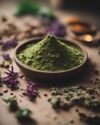
HERBAL TOOTH POWDERS: Rediscovering Ayurveda's Natural Secrets
SRAVAN BANDA presents a natural herbal tooth powder, offering a holistic approach to oral hygiene, harnessing the power of medicinal herbs.

The Dance of Light and Shadow Lessons from the Dolomites
ALAIN DESVIGNE explores the Dolomites, listed as a UNESCO World Heritage Site in 2009.
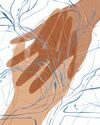
FINDING OUR WAY
A Polynesian Explorer's Journey of Discovery
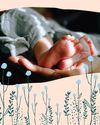
The First Imprint: Understanding PTSD
CHRISTIANNA DEICHMANN is the Director of Education at the Association for Pre and Perinatal Psychology and Health (APPPAH), where she educates both professionals and parents on fostering the most nurturing environments for welcoming new life into the world.
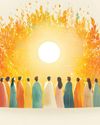
The Tipping Point
In this final conversation of the series, J. FREDERICK ARMENT continues to talk with CHRISTINE JONES about promoting peace in the world.
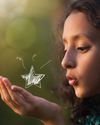
UNLOCK YOUR POTENTIAL
Take The Brighter Minds Path To Cognitive Development

The Intrinsic Goodness of the Heart
DAAJI shares some thoughts on heartfelt acceptance and all it has to offer. He says, \"It is the heart's intrinsic goodness that allows us to accept everything as part of us.
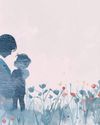
How Does Fear Affect Our Roles as Mothers? - Neelam Shivhare explores some of the great ancient texts of India on motherhood, compares the behavior of Kaikayi and Yashoda
Neelam Shivhare explores some of the great ancient texts of India on motherhood, compares the behavior of Kaikayi and Yashoda, and realizes the importance of removing fear from our hearts in order to nurture our children.For young women like myself, who are future mothers, I trust we are on the path of becoming selfaware and brutally honest with ourselves. We are creative beings, never forgetting the gifts with which we have been bestowed— the love and tenderness, natural instincts, and intuition to feel the right path. It all lies in the mysterious meanderings of the heart. Are we really listening to our hearts, or confusing the bombarding information on social media with reality?